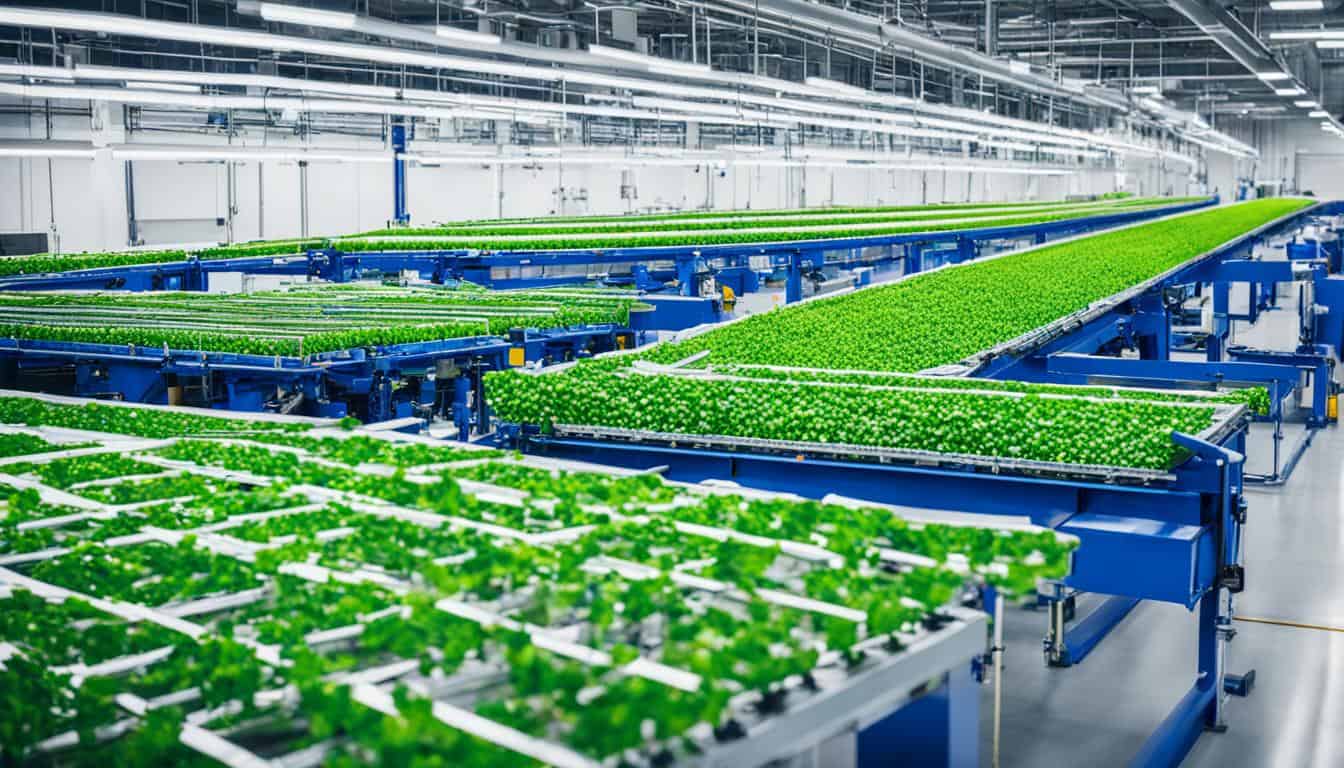Every day in the United States, a staggering 700,000 tons of trash is generated. To combat this growing concern for our planet’s well-being, I’m committed to sharing ways we can collectively manage waste better and move towards sustainability.
From simple steps such as adopting zero-waste habits to embracing a lifestyle that minimizes waste, there are practical and impactful strategies that can reduce the environmental footprint. Engagement in recycling and composting, as well as avoiding single-use plastics, investing in sustainable materials, and supporting local farmers all contribute to a more sustainable future. It’s vital to remember that perfect waste management isn’t the goal but rather millions of us making environmentally conscious, imperfect efforts towards a greener tomorrow.
Key Takeaways
- Adopting zero-waste habits can significantly reduce the environmental footprint.
- Recycling, composting, and responsible consumption are essential for sustainable waste management.
- Sustainable materials and supporting local farmers can contribute to a greener future.
- Effective waste management requires combined efforts from individuals, communities, and governments.
- The ultimate goal is to make environmentally conscious choices in our everyday lives to create lasting change.
11 Best Waste Management for Sustainability Tips
Here is a list of 11 best tips on waste management for sustainability, along with supporting statistics and data:
1. Reduce food waste
- According to the EPA, food waste was the largest category of municipal solid waste sent to landfills, estimated at 63.1 million tons in 2018.
- Around 8% of global greenhouse gas emissions are associated with food waste.
- The average American family of 4 wastes between $1,350 to $2,275 in food per year.
2. Practice home composting
- Composting food scraps, yard waste, and other organic materials can divert 20-30% of household waste from landfills.
- Over 93 million tons of municipal solid waste gets recycled or composted in the US each year.
3. Avoid single-use plastics
- Only 9% of plastic waste ever produced has been recycled.
- There will be more plastic than fish in the oceans by weight by 2050.
4. Donate used goods
- Around 80% of items buried in landfills could be recycled.
- Donating used goods to charity keeps them in circulation longer.
5. Buy recycled products
- This closes the recycling loop and drives demand for recycled materials.
- The US recycles over 93 million tons of municipal solid waste each year.
6. Repair broken items
- Repairing broken items instead of replacing them reduces waste and saves money.
7. Refuse unnecessary packaging
- Plastic packaging makes up nearly half of all plastic waste.
- Bringing reusable bags when shopping reduces plastic bag waste.
8. Print less paper
- Paper products make up over 25% of landfill waste.
- Setting printers to double-sided and avoiding printing unnecessarily reduces paper waste.
9. Compost yard waste
- Yard trimmings and leaves can be composted instead of sent to landfills.
- This enriches soil naturally without chemical fertilizers.
10. Recycle e-waste properly
- E-waste is the fastest growing waste stream, expecting to reach 120 million tons by 2050.
- Recycling e-waste prevents hazardous materials from contaminating landfills.
11. Educate others
- Spreading awareness helps drive change on a broader scale towards zero waste.
- Small daily choices like refusing straws make a significant environmental difference over time.
Embracing the Zero-Waste Lifestyle
I wholeheartedly believe in incorporating manageable zero-waste tips into everyday life for a considerable change in waste management and sustainable consumption. Whether it’s the amount of waste or the type of waste, small changes can make a big difference in our surroundings. Here are some everyday habits that can help manage waste and promote a zero-waste lifestyle.
Simplicity in Reducing Your Personal Waste
Begin with the basics, by reducing personal waste volumes. Simple yet effective strategies include:
- Choosing bulk goods over packaged items
- Ditching plastic bottles for reusable options
- Investing in cloth produce bags for groceries
- Giving vegetables a chance, preventing organic waste disposal
Purchasing with Purpose: Eco-Friendly Products
Support the cycle of reuse by opting for eco-friendly alternatives, fostering sustainable consumption and encouraging less waste:
- Use beeswax wraps instead of plastic wrap
- Choose bars of soap over bottles
- Create homemade cleaning products
Demystifying Sustainable Waste Habits: Small Changes, Big Impact
We need to demystify sustainable waste management practices by acknowledging the significance of every small change in our journey towards zero-waste goals:
Whether recycling spare tires or giving ugly veggies a chance, every action makes a big impact in steering us closer to achieving our waste reduction objectives.
By adopting these sustainable waste management practices, we can prevent household waste accumulation, contribute to management of waste, and successfully embrace waste recycling initiatives. So, let’s start today and work together in creating a greener future!
Advancing Renewable and Efficient Energy Use
Energy conservation through the use of energy-efficient appliances and transitioning to renewable energy sources such as solar, wind, and hydroelectric power can greatly reduce our reliance on fossil fuels. By focusing on reducing energy consumption, we can diminish the environmental impact and advance towards a more sustainable waste management system.
US EPA – What You Can Do About Climate Change — Waste
Cut down on waste by reusing items like old clothing and containers, and buy products made from recycled content.
Efficient energy use encompasses embracing LED lighting, proper insulation, and even checking car air filters to promote better fuel consumption. These practices not only serve as a method of managing waste but also align with the broader goals of sustainability, illustrating the interconnected nature of energy and waste management in building a more eco-friendly future.
Incorporating renewable energy and energy-efficient practices into our daily lives can lead to immense positive changes in waste reduction and overall environmental sustainability.
- Switch to energy-efficient appliances and electronics
- Invest in solar panels or other renewable energy sources for home energy generation
- Insulate your home to conserve energy in heating and cooling
- Replace traditional light bulbs with LED options
- Regularly maintain your vehicle for improved fuel efficiency
Ultimately, the advancements in renewable energy and energy efficiency not only contribute to the reduction of our environmental footprint but also promote more sustainable waste management by conserving valuable resources and reducing the need for non-renewable energy sources. By taking actionable steps in our own lives to utilize renewable energy and conserve energy, we can play our part in preserving the planet for future generations.
Innovative Water Conservation Strategies
Water conservation is essential within the realm of sustainable waste management, and adopting innovative strategies can make a significant difference in preserving this vital resource. By addressing leaks and embracing efficient water use, we can work towards a more sustainable and environmentally friendly way of life. In this section, we will explore various solutions such as leak repairs, water-saving fixtures, and xeriscaping, all of which are designed to reduce water consumption and contribute to a greener environment.
Leak Repairs and Water-Saving Fixtures
One of the most straightforward yet effective water conservation methods is routine leak detection and repair. A small leak can lead to the loss of hundreds, if not thousands, of gallons of water over time. By identifying and fixing leaks promptly, we can conserve a significant amount of water and reduce waste. Additionally, installing water-saving fixtures such as low-flow showerheads, faucet aerators, and dual-flush toilets can help maintain a comfortable lifestyle while lessening the impact on our water resources. These appliances are designed with efficiency in mind and greatly contribute to water conservation efforts.
The Benefits of Xeriscaping
Xeriscaping is another innovative water conservation strategy worth exploring. This landscaping approach utilizes drought-resistant plants that require minimal watering, effectively reducing outdoor water usage. Xeriscaping helps maintain visually appealing landscapes that blend sustainability with aesthetic charm. In addition to its water-saving attributes, xeriscaping provides several environmental benefits such as reduced pesticide usage, diminished erosion, and the creation of essential habitats for native wildlife and pollinators, all of which support a vibrant and healthy ecosystem.
Water conservation plays a crucial role in sustainable waste management, and embracing innovative strategies is essential to preserving this vital resource. By proactively addressing leakage, installing water-saving appliances, and exploring the benefits of xeriscaping, we can reduce water consumption and contribute to a healthier and more sustainable environment for years to come.
The Impact of Sustainable Food Consumption

Understanding the significance of sustainable food consumption is crucial to developing effective sustainable waste management practices. By making conscious dietary and purchasing choices, we can reduce the environmental impact of our food consumption as well as mitigate food waste, which constitutes a major component of municipal solid waste.
Transitioning to Plant-Based Diets
One impactful way to promote sustainable food consumption is by transitioning towards a plant-based diet. By reducing our reliance on animal products, we can lower the carbon footprint linked to livestock farming and reduce the pollution associated with it. Furthermore, plant-based diets have the added benefit of being healthier for our bodies, contributing to overall well-being in the process.
Consider the following benefits of adopting a plant-based diet:
- Reduced greenhouse gas emissions
- Less land and water usage
- Increased biodiversity and habitat preservation
- Healthier personal lifestyle
Supporting Local and Organic Producers
An important aspect of sustainable food consumption involves supporting local and organic producers. By choosing locally sourced foods, we help bolster local economies while reducing the environmental impact of transportation. Furthermore, organic foods are cultivated without harmful pesticides and artificial fertilizers, leading to a more sustainable agricultural system and a healthier population.
Let’s explore the advantages of supporting local and organic producers:
- Decreased environmental impact of transportation
- Reduced usage of chemical pesticides and synthetic fertilizers
- Enriched local economy
- Improved food quality and safety
In conclusion, sustainable food consumption plays a significant role in mitigating the harmful effects of the current food system on our environment. By adopting plant-based diets and supporting local and organic producers, we can make informed decisions to drive sustainable waste management practices within our communities. As a result, we will contribute to the collective goal of a greener and healthier future for our planet and future generations.
Green Building: Designing for the Future

The concept of green building and sustainable architecture is revolutionizing the way we design our future. By utilizing materials and methods that save energy, such as energy-efficient insulation and designs that capitalize on natural lighting and ventilation, we’re making strides in reducing waste and promoting sustainability. Innovative approaches like green roofs and walls not only enhance insulation but also absorb rainwater and provide habitats, adding greenery and life to urban landscapes while simultaneously managing waste more sustainably.
Materials and Methods that Save Energy
Energy-efficient design is paramount in creating sustainable structures. I strongly advocate for embracing passive solar design, which optimizes natural lighting and heating to reduce energy consumption. Adding features like high-performance windows, effective insulation, and advanced lighting controls can further enhance the building’s energy efficiency. Furthermore, using sustainable materials management practices, such as repurposing or recycling construction materials or choosing responsibly sourced materials, actively contributes to a healthier environment.
Integrating Nature with Architecture: Green Roofs and Walls
Integrating nature into our built environment has profound benefits for sustainability. Green roofs, or roof gardens, help retain rainwater, improve insulation, and increase a building’s aesthetic appeal while reducing the urban heat island effect. Similarly, green walls or living walls, featuring vertical gardens, contribute to better air quality and insulation while offering an element of natural beauty to our urban landscapes. By incorporating these innovative solutions into modern urban design, sustainable architecture has the power to transform our cities into more eco-friendly and livable environments.
Best Waste Management for Sustainability
As we strive for sustainability as the guiding principle in waste management, it is essential to focus on the implementation of reusable product models and an increase in recycling initiatives. Embracing alternatives to single-use items and promoting recycling can significantly reduce the volume of waste while fostering a culture centered around waste reduction and recycling. Practicing sustainable waste management includes diverting waste from landfills and retaining raw materials within the economic loop.
Implementing Reusable Product Models
Reusable product models serve as a practical approach to sustainable waste disposal. By choosing items that can be used multiple times, such as shopping bags and refillable water bottles, we create a waste management strategy that limits the consumption of raw materials and prevents unnecessary waste. These eco-friendly options are not only cost-effective but also contribute significantly to achieving zero waste objectives.
The Rise of Recycling: From Curbside to New Life
Recycling plays a critical role in waste diversion and serves as the foundation for any successful waste management strategy. From curbside collection to repurposing of materials, adopting an effective recycling program enriches the environment and ensures a sustainable future. By actively participating in recycling initiatives, we are taking significant steps towards preserving natural resources and reducing landfill waste. With continued efforts in waste reduction and recycling, we can turn the tide of environmental degradation and secure a greener future for the coming generations.
Revolutionizing Transportation for Lower Emissions

A pivotal factor in sustainable waste management is the transformation of transportation to reduce emissions. Opting for public transit, carpooling, biking, and walking diminishes carbon emissions from personal vehicles. The adoption of electric or hybrid vehicles furthers the goal of minimizing air pollution and dependence on fossil fuels. These transportation strategies are essential steps towards reducing the overall environmental impact and promoting sustainability within our waste management practices.
Embracing alternative modes of transportation like public transit and carpooling not only contributes to emission reduction but also alleviates road congestion and reduces the need for parking infrastructure. Moreover, investments in expanding bike lanes and pedestrian-friendly public spaces promote a healthier, more environmentally-friendly lifestyle.
The popularity of electric vehicles(EVs) is surging across the United States, and their integration into mainstream transportation options significantly helps lower carbon emissions. Incentive programs for EVs, the development of charging stations, and education campaigns highlighting the benefits of electric vehicles are empowering individuals to make more sustainable transportation choices.
Imagine a more sustainable future where a majority shift to greener transportation options, like electric vehicles, public transit, and carpooling, leads to cleaner air and a healthier environment. The tangible benefits associated with these transport choices motivate continued progress in sustainable waste management.
“The greatest threat to our planet is the belief that someone else will save it.” – Robert Swan
In conclusion, transportation plays an essential role in sustainable waste management. By adopting greener methods like electric vehicles, public transit, carpooling, biking, and walking, we can significantly reduce our overall environmental impact and contribute to a healthier planet. It’s up to each of us to take the necessary steps and adapt our daily habits to create a more sustainable future.
Making Conscious Consumer Choices
Practicing conscious consumer choices plays a key role in sustainable waste management. By embracing second-hand markets and looking for eco-friendly certifications, we can help create a more sustainable future. As consumers, it’s our responsibility to make informed decisions that positively impact the environment.
Embracing the Appeal of Second-Hand Markets
Second-hand shopping is a powerful way to not only save money but also extend the lifespan of products. By choosing to buy used items, we can reduce the demand for new production, effectively decreasing waste in the process. Second-hand markets provide an opportunity to find unique, sustainable products that contribute to waste reduction and promote a circular economy.
Seeking Out Sustainable Product Certifications
When shopping for new products, it’s essential to pay attention to eco-friendly certifications. These labels ensure that the products we buy have minimal environmental impacts and are produced ethically. Relying on certifications, such as Fair Trade, USDA Organic, or Forest Stewardship Council, can help us make better purchasing decisions and contribute to a more sustainable lifestyle.
In conclusion, conscious consumer choices have a significant impact on sustainable waste management. By taking advantage of second-hand shopping and seeking out eco-friendly certifications, we can all play a part in reducing waste and moving towards a greener future.
Spearheading Educational Efforts for Greener Policies
Education and advocacy play a crucial role in driving sustainable waste management and fostering greener policies. By raising environmental consciousness and informing the public, we create a well-informed community equipped and motivated to support actions and policies aligned with sustainability.
Informing the Public: Raising Environmental Consciousness
Raising environmental consciousness is essential for promoting sustainable waste management practices, green policies, and collective action. By creating awareness about the impact of waste on our environment, we can inspire more people to take the necessary steps toward sustainable living. This can be achieved through various educational programs, workshops, and online resources, as well as fostering collaboration between schools, businesses, and local governments aimed at advancing environmental education.
Education is the most powerful weapon which you can use to change the world. – Nelson Mandela
Advocacy for Policy Change: The Power of the Collective Voice
Encouraging advocacy for policy change can amplify the collective voice, which holds immense power in shaping a society geared towards effective waste management and environmental protection. Activism can take many forms, including organizing community events, writing letters to local leaders, and engaging in online campaigns. By empowering individuals to advocate for change, we can drive progress in environmental policy and create a more sustainable future for all.
- Support local and national environmental organizations.
- Spread awareness and engage in conversations with friends and family about sustainable waste management.
- Use social media platforms to promote and support green policies and initiatives.
In conclusion, educational efforts and advocacy are instrumental in driving sustainable waste management and fostering greener policies. By raising environmental consciousness and encouraging collective action, we can build a more informed and proactive community that relentlessly supports the development and implementation of sustainable actions and policies. By working together, we can ensure a greener tomorrow for generations to come.
Conclusion on Best Waste Management for Sustainability
In our journey towards a sustainable future, it is clear that a collective effort is required for lasting change in waste management. We must focus on transforming our relationship with the environment and strive towards waste management excellence. By working together and taking responsibility as individuals and communities, we can enact meaningful changes that benefit not only ourselves but the planet as a whole.
Encouraging Community Involvement for Lasting Change
Community involvement is integral to creating sustainable waste management solutions that have a lasting impact. By collaborating and embracing sustainability ideas – such as zero-waste practices, renewable energy, and conscious consumerism – communities are empowered to work together towards a greener future. Additionally, supporting local initiatives and encouraging ongoing dialogue on waste management can foster progress in this vital area.
The Continuous Journey Towards Waste Management Excellence
The path towards waste management excellence is a continuous journey that requires dedication from all sectors of society. It is essential to remain committed and adaptable, exploring new methods and technologies that increase efficiency and minimize environmental consequences. Through continuous learning and improvement, we can work together to safeguard the planet for generations to come, demonstrating that every small effort contributes to a greener and more sustainable future.
FAQ on Sustainable Wasted Management
Q: What are some sustainable waste management practices?
A: Sustainable waste management practices include waste reduction, proper disposal, recycling, composting, and the use of sustainable materials to reduce the environmental impact of waste.
Q: How can I reduce the amount of waste generated in my household?
A: You can reduce the amount of waste generated in your household by practicing waste prevention, reusing items, recycling, and composting organic waste.
Q: What is the environmental impact of waste production?
A: The environmental impact of waste production includes pollution, greenhouse gas emissions, habitat destruction, and depletion of natural resources. Implementing sustainable waste management strategies can help mitigate these impacts.
Q: What are some sustainable waste disposal methods?
A: Sustainable waste disposal methods include recycling, composting, waste-to-energy conversion, and proper disposal of hazardous waste to minimize environmental harm.
Q: How can businesses improve waste management?
A: Businesses can improve waste management by implementing sustainable waste management strategies, reducing the amount of waste produced, and properly disposing of waste according to regulations.
Q: What are the different waste management options available?
A: Waste management options include landfill disposal, recycling, composting, waste-to-energy conversion, and incineration. Each option has its own environmental impact and considerations for sustainability.
Q: How does waste management refer to the handling of waste materials?
A: Waste management refers to the collection, transportation, disposal, and recycling of waste materials to minimize environmental impact and promote sustainability.
Q: What are the categories of waste for sustainable management?
A: Waste categories for sustainable management include non-hazardous waste, hazardous waste, industrial waste, organic waste, and recyclable materials, each requiring specific handling and disposal methods.
Q: What are the best practices for managing hazardous waste?
A: Best practices for managing hazardous waste include proper labeling, storage, transportation, and disposal according to regulations to minimize the risk of environmental contamination and harm to human health.
Q: How can we make sustainable waste management a priority for a greener future?
A: Making sustainable waste management a priority for a greener future involves raising awareness, implementing policies and regulations, investing in waste reduction technologies, and promoting a culture of environmental responsibility.





Leave a Reply